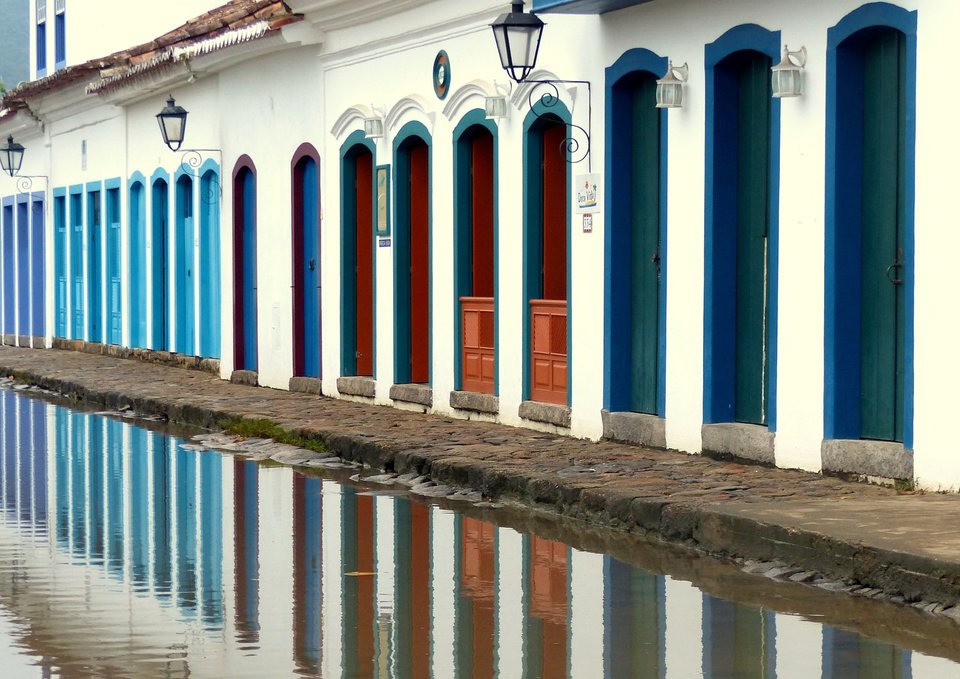In the marvelous city, you will enjoy an historic walk, and learn about the transatlantic slave trade, as well as the cradle of samba, on the Little Africa tour. You will also visit community arts projects in Santa Teresa, the city’s bohemian neighborhood, with stunning views of Guanabara Bay, and continue by taking a favela tour and visiting the Morrinho Project, to learn about how community art promotes positive change. And of course, you can’t miss the city’s iconic visits – to the foot of Christ the Redeemer, the top of Sugarloaf Mountain, and some free time to explore Copacabana and Ipanema beaches.
Rio de Janeiro state is also filled with rolling green valleys and tropical forest, with hidden treasures and history. Learn about the experience of former slaves, from their direct descendants, on coffee farms, as you enjoy regionally made coffee. Continue to Paraty to learn about the history of this city and its involvement in the Brazilian “gold rush.” Take a cooking class using locally sourced ingredients, and prepare dishes derived from our African heritage. Take a hike in the Atlantic rainforest, meet local families, and dive in beautiful natural pools.
Visit two traditional quilombos, communities of the descendants of African slaves, one of Brazil’s “traditional communities”. Learn about what this is, and how they work to preserve their culture and the environment. You will then learn to dance Congada, on Ilhabela, an island often referred to as paradise, off the coast of São Paulo. Finalize this leg by exploring the capital city and visiting traditional immigrant enclaves, as well as new immigrant and refugee experiences in Brazil.
Learn about the Afro-Brazilian religion of candomblé, by visiting a babalorixá, a local spiritual leader, and the cradle of Candomblé, near the city of Cachoeira. Take a class with a capoeira master, to understand more of this dance/martial art, unique to Brazilian culture in the capital city of Salvador, and see how the African heritage is entwined in local culture, in the open air markets of the city, from religious articles to spices, and street foods. Finally, visit one of the most populous neighborhoods in the world, where you’ll find the headquarters of the most traditional African Carnival group.

